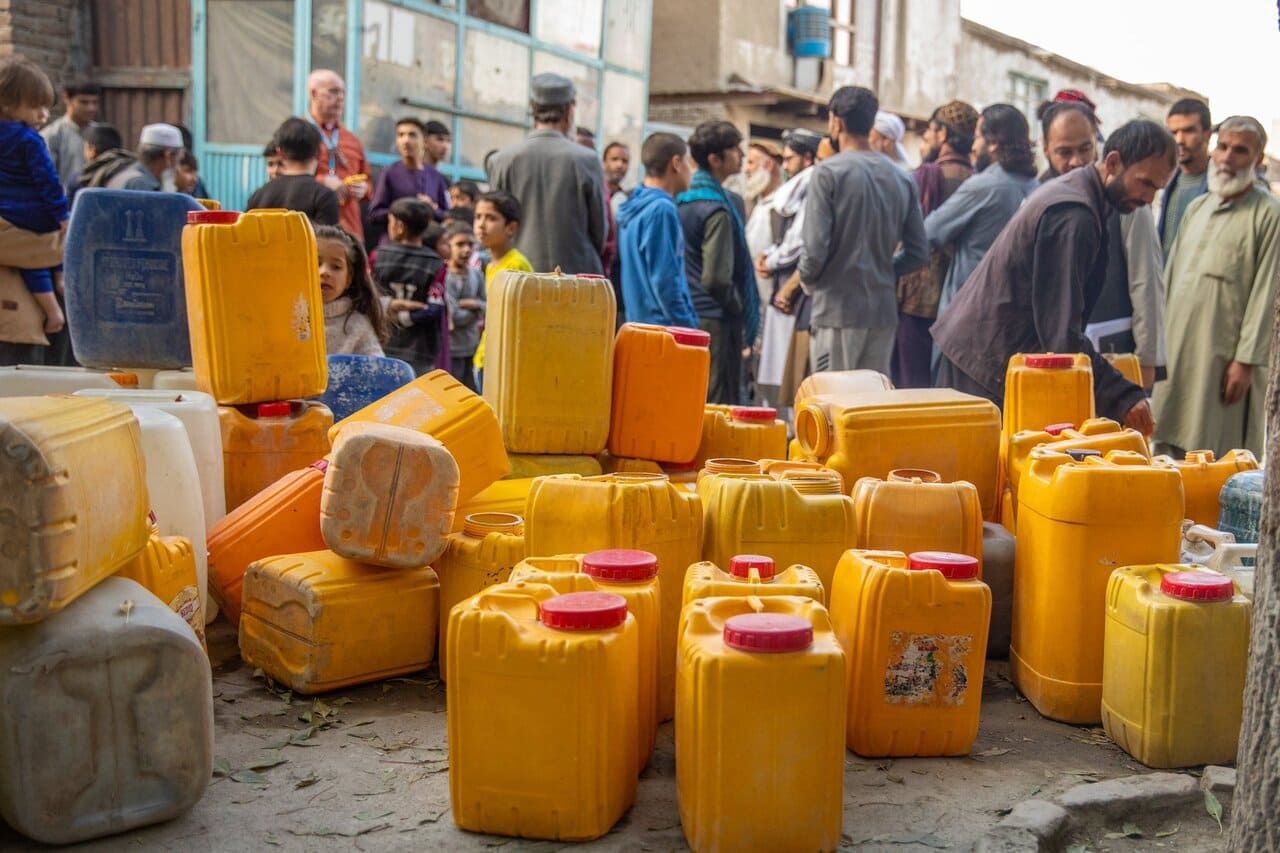The United Nations Children’s Fund (UNICEF) has issued a grave warning that Kabul’s groundwater could be fully depleted by 2030 unless immediate action is taken. This alarming projection stems from rapid urbanization and the escalating impacts of climate change, highlighting the urgent need for solutions to prevent a looming water crisis.
Water is life. Due to rapid urbanization and climate change there could be no ground water in Kabul by 2030, if we do not act now.
— UNICEF Afghanistan (@UNICEFAfg) October 29, 2024
We can stop this. Our Rep @TajudeenOyewale and SRSG @otunbayeva went to meet affected communities & find out how to help meet this basic human need. pic.twitter.com/z3WtzM73WP
In a statement released on October 29, UNICEF emphasized the necessity for swift intervention. Roza Otunbayeva, the UN Secretary-General’s Special Representative for Afghanistan, alongside Tajudeen Oyewale, UNICEF’s Afghanistan representative, recently visited several water-scarce areas in Kabul. Their objective was to identify potential strategies to mitigate the worsening water shortage affecting the city.
Severe water scarcity has become a persistent issue for Kabul residents, evidenced by frequent scenes of individuals waiting in long lines at water distribution points. Unregulated drilling of deep wells has further contributed to the depletion of groundwater levels, exacerbating the situation.
The UN Development Program (UNDP) has previously highlighted Afghanistan’s critical water crisis, with approximately 79% of the population lacking adequate access to clean water. UNDP attributes these challenges to a complex interplay of factors, including prolonged drought, economic instability, and decades of conflict, which have severely damaged the country's water infrastructure.
According to UNDP data from 2023, 67% of Afghan households reported facing difficulties related to drought, while 16% experienced disruptions due to floods. Currently, Afghanistan is enduring one of its worst droughts in decades, accompanied by food and water shortages that threaten the livelihoods of over two-thirds of its population.

The Global Climate Risk Index ranks Afghanistan as the sixth most vulnerable country to climate-related threats, underscoring the urgent need for both international and local efforts to address this escalating crisis.
“Water is life. Due to rapid urbanization and climate change, there could be no groundwater in Kabul by 2030 if we do not act now,” UNICEF stated in a message shared on the social media platform X. The organization urged immediate action, stating that swift measures could prevent an impending crisis.
Residents of Kabul are increasingly reporting severe water shortages, with many forced to spend considerable sums each week to obtain potable water due to the lack of sustainable sources. In several neighborhoods, families rely on tanker trucks for water delivery, often waiting in long queues to fill a few barrels to last the week. Reports indicate that families in northern Kabul are spending between 400 and 500 Afghanis each week on water deliveries, which often fail to meet their basic needs.
As of now, the Taliban government, which controls Afghanistan, has not announced any plans to address the growing water crisis affecting Kabul and other regions. The United Nations has repeatedly warned that drought and water scarcity represent some of Afghanistan’s most pressing challenges, compounding existing issues in a country already facing security and human rights concerns.
Follow Daryo's official Instagram and Twitter pages to keep current on world news.
Comments (0)